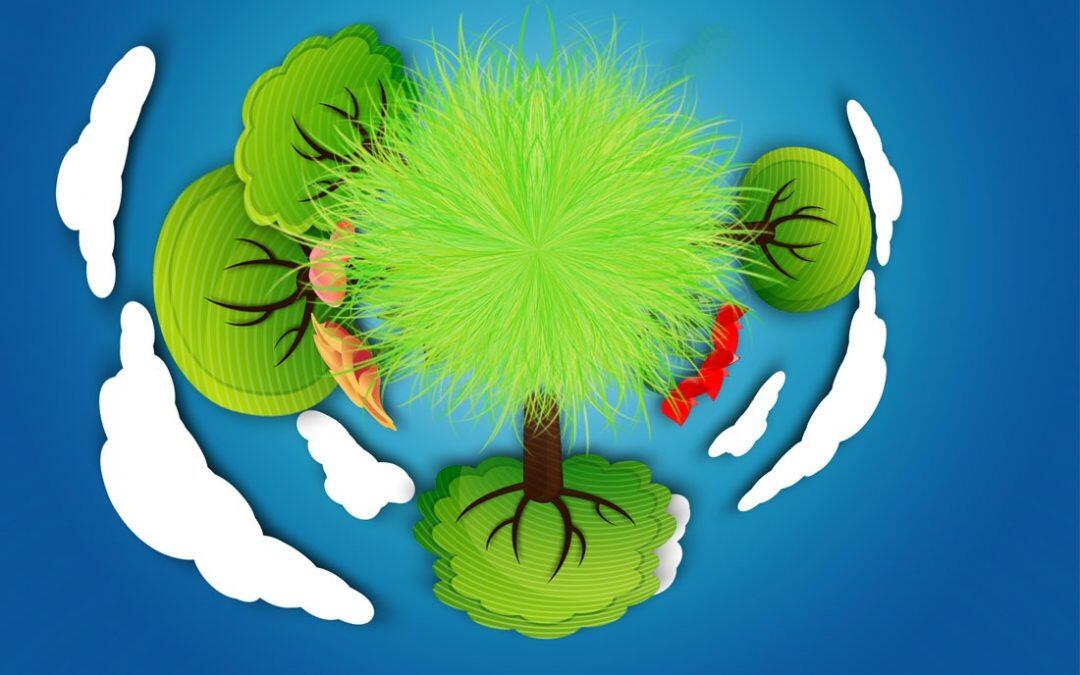In recent years, the tech sector around the world has come to recognize the importance, the urgent necessity even, of going green.
The Middle East is no stranger to such initiatives, with governments, business leaders, and startups adopting more environmentally friendly solutions by the day, and correspondingly switching to clean energy sources. Just last year, the region collectively tripled its renewable investments, and this past spring, the UAE launched the Middle East’s first green bond, raising over $500 million.
As desertification claims more arable land, countries in the Middle East and North Africa are increasingly likely to face water shortages. Today, nearly half of the world’s most water-stressed countries are located in MENA.
Investing in alternative solutions now is essential for the region as the rich oil reserves that have served as economic engines are dwindling, with many estimates projecting that they will run out in the next 50 or so years. To tackle these two pressing matters, green companies are both lightening their ecological footprint and generating successful new businesses that can help propel the region into the cleantech leaderboards.
Cleantech and environment startups will be a main focus during the upcoming GITEX Future Stars event this October, running from the 8th to the 12th in Dubai. The event is being held in collaboration with Wamda, applications are still open.
We’ve cobbled together a list of startups from across the Middle East that are true trailblazers when it comes to green initiatives:
- Blink My Car (Lebanon): This young company circumvents water shortages by offering an on-demand car wash service that requires just one cup of water. Using its app, one can request a car wash at any location; the company then sends a staff member by bike to do the job with eco-friendly products and minimal use of water. After receiving $1.2 million in investments (largely from Phoenician Funds) at the beginning of June 2017, the startup is eyeing expansion.
- Eco-dôme Maroc (Morocco): This startup relies on traditional materials to create new/old housing solutions. Using a mixture that is 90 percent earth and 10 percent cement, the company builds environmentally friendly and natural disaster-resistant domes. The thermally insulated domes are gaining traction, as they offer a cost reduction of almost 50 percent as well as decreased construction times.
- Recyclobekia (Egypt): This enterprise seeks to revolutionize electronic waste disposal in its home country. Back in 2011, the startup comprised a group of Egyptian students seemingly lacking everything but motivation. Today, it provides one of the few services of its kind in the region. Depending on its partner arrangements, Recylobekia either purchases or collects e-waste for free from companies and individuals. It sells what it refurbishes locally, while the remainder is packaged and sold to recycling factories abroad.
- Saphon Energy (Tunisia): This Tunisian enterprise conquers the air; it harnesses wind power. Inspired by ancient Carthaginian ships, its machine, called the Saphonian, is a bladeless wind turbine twice as efficient and half as expensive as traditional models. The Saphonian does not create noise pollution and, as it has no blades, which reduces the risk to avian wildlife posed by its competitors. Additionally, it comes in a pretty sleek design.
- Taka Solutions (UAE): This company was launched by two American engineers in Dubai in late 2014, and has already made its mark. Taka Solutions retrofits Dubai’s buildings with the aim of reducing energy waste. To do so, the startup uses energy performance contract models, essentially underwriting the service it provides and then receiving as payment a portion of the savings it enables.
- Zero Mass Water (Jordan): With climate change well underway, water stress has become a dire issue in the Middle East. This Jordanian startup has devised a truly inventive solution; Zero Mass Water’s solar panel extracts, condenses, and purifies water from thin air. Bolstered by grants from organizations such as USAID, Zero Mass Water is forging ahead, and its panels are bound to start popping up across the region.
Source: http://bit.ly/2uIoRjW











